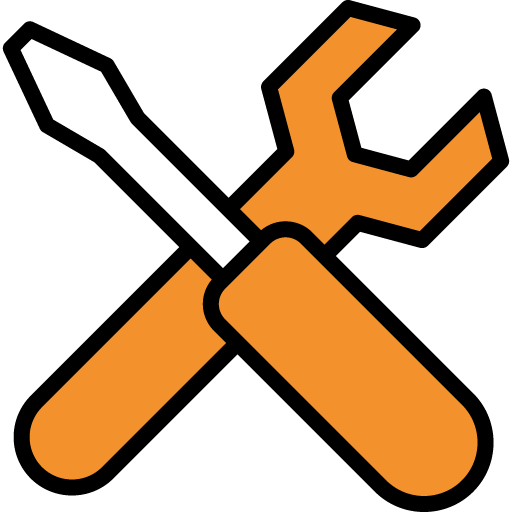Your basket is currently empty!
Written by
How Long Do Boilers Last? Timescales & Boiler Lifespan Guide

How Long Does A Boiler Last? – Boiler Lifespan

It’s not surprising that many of us ask ourselves the question, ‘just how long do boilers last?’
Well, our research tells us that the average combi boiler should last between 10 – 15 years.
Now that’s a pretty long time, and it doesn’t mean to say that some boilers will stop working when they become 15 years old!
Modern condensing boilers from top manufacturers like Worcester Bosch, Viessmann & Ideal are likely to continue providing heat for many more years.
However, that old boiler is likely to be less energy efficient, and that means higher energy bills.
So that’s already a pretty strong case for comparing quotes for new boilers.
Learn how to prolong the boiler’s lifespan while avoiding shutdowns and reducing expenditures.
Get your Fixed Price Boiler Quotes Online
New Gas Boilers with £0 Deposit & 0% Interest Finance Availble
Get the best quotes for boiler installation online in under 1 minute now
What influences the life of a gas boiler?
There are many factors that determine the life expectancy of your water heater system.
Whether you get 10 years, 15 years, or even longer before you need a new gas boiler can be down to a range of factors.
Getting your boiler serviced every year is one of the key reasons for a boiler that has stood the test of time.

Others include who the manufacturer of the boiler is and the operating conditions, such as temperature and pressure.
You also need to take into account the frequency of use, how much heat is being produced, and whether the manufacturer’s servicing recommendations have been followed.
We’re going to look at some of the ways to extend the life expectancy of your boiler, giving you peace of mind that you’ll get the maximum value from your appliance.
Regular servicing increases the boiler lifespan
One of the most important factors for extended boiler life is maintenance.

An annual service can detect malfunctioning parts before they become a problem.
And a manufacturer’s recommendations should be followed to prevent damage to your unit.
Heating engineers will carry out a number of checks when carrying out the service. This then ensures your boiler is operating within a safe working range.
Annual inspections are a good way to find out what’s going on with your boiler.
They can help you avoid parts failures down the road, even if you think you have the best combi boiler on your street.
You should also check what the average boiler service cost is before calling your local engineer to see how much it may be and what can affect this price.
Get your Fixed Price Boiler Quotes Online
New Gas Boilers with £0 Deposit & 0% Interest Finance Availble
Get the best quotes for boiler installation online in under 1 minute now
Always use a Gas Safe heating engineer
Do make sure that you arrange for a Gas Safe registered engineer to carry out the boiler service. This ensures that the engineer is suitably qualified to carry out the work.
Many boilers manufacturers, such as Worcester Bosch, require any work and services to be carried out by a qualified Gas Safe registered engineer. If you don’t follow this requirement, you may find that your warranty has been voided.
Choose a boiler suitable for your needs so it lasts longer
If your boiler is under capacity for your heating requirements, you will find that it won’t last as long as a boiler of adequate size for the job.

The thing is, undersized boilers require more maintenance to keep them in working order, and they may have to be replaced before their time.
This can also lead to higher energy bills because they are on too often and not running efficiently. So buying a new boiler that has a lower power output than your hot water needs.
It may be cheaper, but it can be a false economy in the long term.
How long does the average combi boiler last?
Over half of all new home boilers installed in the UK each year are combination boilers (or “combi boilers”), which are common choices among UK households.
It’s easy to see its attraction, but how long can you expect a combi boiler in your house to operate?
The quality of the appliance and how well you maintain it are just two of the variables that will determine the answer to this question.
It’s critical to understand that quality and longevity of new boilers might vary substantially when purchasing one for your home.
If the boiler you purchase isn’t manufactured to a high level, saving money for a new boiler in the short term by choosing the cheapest model you can find could cost you more in the long run.

Combi boilers typically have a lifespan of 15 years, though this lifespan could increase if you choose a high-quality model and maintain it regularly.
Pay attention to the warranties that are provided with boilers. If it’s possible, think about obtaining an extended warranty to gain additional piece of mind.
You’ll also get some idea of how long the manufacturer thinks each type of boiler will last by comparing the warranty on offer.
For example, in our Viessmann 100 review, we highlight the impressive 12-year warranty currently on offer.
How long do System boilers last?
If your boiler is supplied from the mains water supply, then heats, and stores it in a hot water cylinder, then you have a system boiler.
Many manufacturers offer similar lengths of warranty for a system as they do for a combi. Viessmann and Worcester Bosch, for example, offer up to 12 years.
Check our Combi vs System boiler page.
How long do regular boilers last?
Often considered to be an older type of central heating system, it needs both tanks and cylinders, so it can be a challenging boiler installation in smaller homes.
As to how long the manufacturers expect the boiler to last, well, there are still some who offer longer warranty periods. Worcester Bosch offers 12 years while Viessmann boilers drop to 10 years.
Which manufacture boilers last the longest?

The quality of manufacturing and the parts used have a significant influence on how long a boiler lasts.
This then means that there can be huge variations between individual models of boilers.
A high-quality combi boiler from a well-established boiler manufacturer such as Worcester Bosch, Viessman, and Ideal will last for many years longer than a cheaply made one.
This means that a low-cost new boiler may not be a good investment especially when you consider installation costs.
When choosing your new boiler, look at the materials used and pay attention to online reviews from other owners.
Remember to check the warranty offered on each boiler. That will give you an idea of how long the manufacturer believes their brand of boiler will operate before a replacement boiler is needed.
Type of water in your area
The quality of your water and its hardness or softness should also be considered. That’s because it can affect the boiler’s seals.
Hard water can corrode them, while soft water often leads to deposits inside the boiler, reducing longevity.
Boilers are designed with a specific degree of hardness in mind. So, different levels may lead to breakdowns or damage.
If you live in a hard-water area, or the water gets harder in summer because of high temperatures, it’s advisable to use an anti-lime system.
Limescale issues
Limescale is a deposit of calcium and other minerals that can build up inside your boiler. Because there’s always water in your heating system pipes, it’s tough to completely prevent limescale from forming.
Some can be removed by using a descaler during the boilers’ annual service, but there will still be some that stay stubbornly in place. In turn, your heating efficiency is reduced, and you may find that the boiler becomes damaged over time.
If you live in an area with soft water then you won’t experience as many lime-based problems.
That means that you can expect your boiler to have a longer working life. For hard water areas, a softener might also be a good investment in the long term.
My boiler is ten years old; should I replace it?
It might be difficult to determine when to replace a boiler.
You risk throwing away a perfectly good boiler that could have lasted a few more years if you replace it too soon. However, if you wait too long, you risk losing your hot water and heating, necessitating an emergency call-out.
How do you tell when a boiler has to be replaced when none of these situations is ideal?
Older boilers are typically less efficient than their more recent counterparts. If you’ve observed a rise in the price of your gas bill, an old or defective boiler may be to blame.
As they age, they become less effective and reliable. Frequently, the problem is that the boiler may use a lot of gas to heat your house to the appropriate temperature. A more recent model might use less petrol to achieve the same result, saving you money.
Keep an eye out for any strange noises that can indicate trouble with your boiler
These include noises that may come from the boiler itself, the pipes, or the radiators, such as creaking, tapping, clanging, moaning, and hissing.
If the proper water treatment process has not been followed, both new and older systems can begin to fill with sludge and limescale, which can limit system performance.
A build-up of magnetite (sludge) can lead to kettling, which puts additional strain on the system.
The central heating system can be cleansed to get rid of the tainted water and allow clean water to flow freely through the radiators and pipes, preventing this from happening.
In more severe situations, the boiler may sustain component damage and may require replacement as a whole.
Last but not least, make sure the boiler flame is blue.
The burner may not be burning properly if the flame is orange or yellow. This may lead to the harmful creation of carbon monoxide.
It could be time to consult a heating engineer if you observe any of the aforementioned symptoms. It might not be necessary to replace your 10-year-old boiler, though, if it is functioning normally and isn’t emitting any odd noises like clanging or hissing.
Continue to have it serviced once a year, listening for any unusual noises, and keeping an eye out for any warning signs that it might be about to fail.
Why you should choose your next boiler carefully?
One of the most crucial appliances in the house is the boiler. It delivers central heating and hot water, two essential elements for a home’s smooth operation, in the majority of home configurations.
So getting a poor-quality boiler with poor boiler installation will only burn a massive hole in your wallet and cause more problems for your house.
Today, the minimum requirement for choosing a new boiler is that it always be a condensing boiler.
Although it is occasionally hard to install a condensing boiler, you should always consult a Gas Safety Registered engineer before making this choice because it is always recommended. Regulations requiring energy conservation and lowering carbon footprint are to blame for this.
The condensing boiler recovers heat that would otherwise escape the system, warming the water and lowering the fuel used for your heating and hot water.
Is it possible to simply replace an old boiler with a new one?
The age and quality of your current heating system will ultimately determine the answer to this somewhat open-ended query.
If your current heating system is relatively old (built before the 1980s), it most likely uses a single-pipe system with single-panel radiators, which means that each radiator on a circuit is supplied by a single pipe.
It is well worth the time and money to invest in dual pipework and dual panel radiators since coupled with a new boiler, this will heat your home more efficiently and save you money on heating expenses. Although this type of system will heat your home, it is not efficient.
How routine maintenance can extend the lifespan of a boiler?
If you want to avoid expensive issues and safety risks, have your boiler serviced by a Gas Safe engineer once a year. In order to maintain the guarantee on a new boiler, you must have it routinely serviced.
An annual service may involve duties like visual inspection, working pressure testing, gas rate testing, and boiler safety inspection. Take a look at our boiler service checklist to understand what a boiler service typically includes.
For the boiler to last as long as possible and to continue operating safely, proper boiler monitoring and maintenance are essential.
Regular maintenance can identify minor problems before they become big ones, as well as procedures that can prolong the boiler’s life while preventing downtime, cutting expenses, producing cleaner combustion, and enhancing safety by lowering hazards.
Delaying repairs can shorten the lifespan of a boiler
That annoying drip coming from the central heating pipe may seem pretty small.

You might even be tempted to put a container underneath and empty every now and then when it’s full. Your boiler’s pipes are deteriorating with every drop of water.
It may sound odd, but hot water and central heating pipes don’t mix.
The heat makes the hot water expand, which puts pressure on the pipe’s joints and causes them to rust and leak.
If you don’t attend to a leak quickly, it will only get worse and soon cause much bigger problems. It’s already likely that your boiler’s efficiency levels have dropped.
Call out the professionals!
Calling out the engineers is so important as soon as there is a leak. Not only will you be able to take measures to prevent further leaks from entering your property but also the engineer can inspect the pipework for any other damage that may need to be fixed.
If possible, pull away any loose insulation and from your pipes.
The most common places for leaks to start are where a pipe bends, where there is an elbow and along the pipework towards radiators and convectors.
Indication of a leaky pipe
- wet patches on ceilings, walls, or floors
- discolouration around joints
- condensation on windows
- noisy pipes, hot to the touch, or allowing steam to escape
Regular power flushing of your heating system can prolong a boiler’s life
One of the best ways to end a boiler’s life is by carrying out regular power flushes on all the radiators and pipes on your property.
This is a procedure that will remove any deposits or sludge build-up that has occurred in the pipes over time.
Sludge that’s made up of dirt and dust causes blockages in the pipes. In turn, it will reduce the flow to and from the radiators, leading to a drop in system efficiency, increased costs for heating bills, and a reduction in radiator performance.
How is power flushing carried out?
Power flushing is carried out by a plumber who will attach a high-pressure hose to the valve of each radiator on your property.
The pipes then fill, flushing away any deposits or residue they contain. In turn, this reduces energy costs and provides more efficient heating for your home.
Power flushing should be carried out at least once a year in order to prolong the life of your boiler and the central heating system and to keep it all running efficiently.
It’s important to note that power flushing won’t restore a central heating system that is past its lifespan; it will only prevent further damage from occurring and slow down the ageing process.
Bleed the radiators to extend the lifespan
Even though combi boilers have built-in automatic air vents, air can still get trapped, affecting efficiency levels. So that gives a strong reason as to why you still bleed the radiators on a regular basis.
Boilers come with manuals for a full step-by-step guide on how to do this. Or ask for advice from an engineer who is on the gas safe register.
When is the time for a new boiler?
You should start thinking about exchanging your old boiler for a new one when:

- A repair will cost more than the boiler’s value
- You’re having multiple repairs to maintain it as it gets older.
- It can’t supply your family’s needs
You should also consider that boiler manufacturers are updating their boilers’ technology all the time.
That then means that boilers purchased 10 years ago are likely to be lower in energy efficiency compared to modern boilers that are now available. As a result, your energy bills will be higher than they need to be.
Now it is important to remember that there’s not just the gas boiler replacement cost incurred when getting a new one. itself.
If you’re changing from a system or regular to a combi, then it’s not just the boiler replacement that needs to be considered. That’s because the installation costs are also likely to be higher when changing the type of heating boiler.
So, how long does a boiler last?
As you’ve seen, while you can expect your boiler to last at least 10 years, there is more than one factor that will influence whether you get another 5 years or another 10 beyond that.
However, just like all mechanical devices, condensing boilers will get to a point where energy efficiency drops and it no longer offers the reliability you need.
In the long term, a boiler’s replacement can actually save money.
When you’re ready for a new boiler it can be challenging to find the right one for your home. This is a great reason for turning to the experts for a new boiler quote.
Get your Fixed Price Boiler Quotes Online
New Gas Boilers with £0 Deposit & 0% Interest Finance Availble
Get the best quotes for boiler installation online in under 1 minute now
Written by
Get your Fixed Price Boiler Quotes Online
New Gas Boilers with £0 Deposit & 0% Interest Finance Availble
Get the best quotes for boiler installation online in under 1 minute now
What is in this article?
- How Long Does A Boiler Last? – Boiler Lifespan
- What influences the life of a gas boiler?
- Regular servicing increases the boiler lifespan
- Choose a boiler suitable for your needs so it lasts longer
- How long does the average combi boiler last?
- How long do System boilers last?
- How long do regular boilers last?
- Which manufacture boilers last the longest?
- My boiler is ten years old; should I replace it?
- Why you should choose your next boiler carefully?
- How routine maintenance can extend the lifespan of a boiler?
- Delaying repairs can shorten the lifespan of a boiler
- So, how long does a boiler last?





